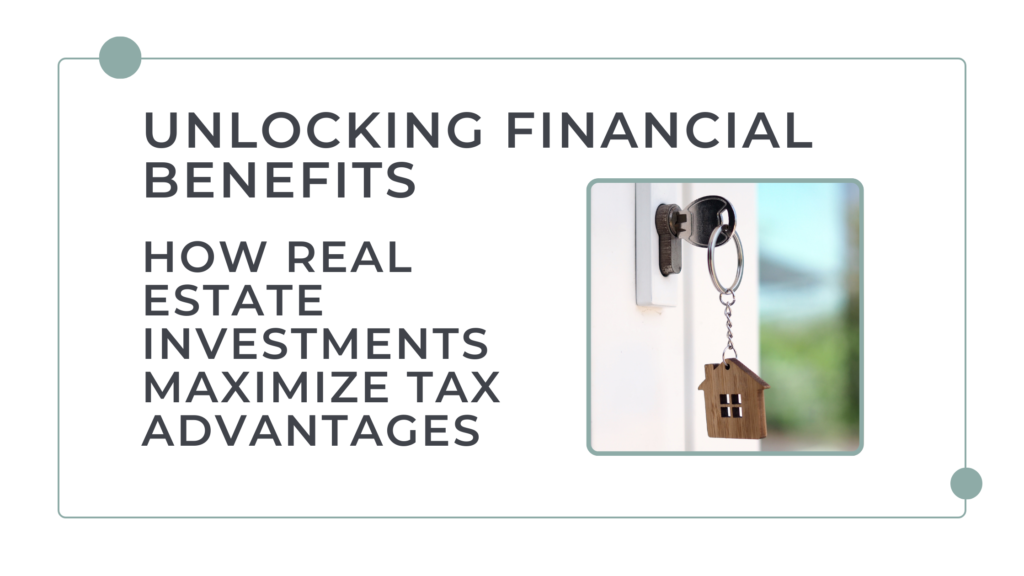Investing in Real Estate stands out not only for its potential capital growth and income but also for its tax benefits, which can significantly enhance an investor’s financial returns. This article delves into the various tax advantages that make real estate an appealing option, especially for beginners aiming to maximize their investment profitability.
Depreciation: The Silent Wealth Builder
One of the most powerful tax benefits in real estate investing is depreciation. Depreciation allows investors to reduce taxable income by accounting for the perceived decrease in property value over time due to wear and tear. This non-cash deduction can be claimed annually, effectively lowering your taxable income while your actual cash flow remains unaffected. For residential properties, depreciation is typically spread over 27.5 years, offering a substantial yearly deduction that can offset income generated from rental properties. And remember this is considered a paper loss in underwriting so this expense will NOT hurt any debt to income ratio calculations.
1031 Exchange: Defer Your Capital Gains Tax
The 1031 exchange, named after Section 1031 of the IRS code, is a strategy used by seasoned real estate investors to defer paying capital gains taxes on an investment property when it is sold. Instead, investors reinvest the proceeds from the sale into a new property of equal or greater value. This process allows the deferral of capital gains taxes indefinitely, enabling investors to leverage their investment capital more effectively by maintaining liquidity and purchasing power.
Mortgage Interest Deductions: Reduce Your Taxable Income
Mortgage interest deductions are another significant tax benefit for real estate investors. Interest paid on a mortgage for rental properties can be deducted from your taxable income, which can result in considerable tax savings. This deduction includes interest on any loans used to purchase, build, or improve a rental property, thus lowering the overall cost of financing your investment.
Deductible Operating Expenses: Maximizing Returns
Almost all operating expenses associated with managing a rental property are tax-deductible. These expenses include property management fees, repairs, maintenance, property taxes, and insurance. By deducting these costs, investors can lower their net income, thereby reducing their overall tax liability. Effective tracking and management of these expenses can significantly enhance the profitability of real estate investments.
Real Estate Professional Status: A Gateway to Further Benefits
For those heavily involved in real estate activities, achieving Real Estate Professional Status (REPS) can provide additional tax benefits. To qualify, individuals must demonstrate that they spend more than 750 hours per year on real estate activities and that this constitutes more than half of their total working hours. With this status, investors can deduct all losses from real estate activities against other types of income, which can be highly advantageous for those who operate multiple properties or who incur significant expenses. And while 750 hours may sound like a lot it breaks down to about 2 hours per day. Consider how much time you spend researching properties and markets. Educating yourself about different real estate approaches. Time spent with your RLG Team strategizing goals and qualifications, and how to maximize both. it adds up quickly.
Conclusion: Leveraging Tax Strategies for Real Estate Prosperity
Understanding and utilizing the tax benefits of real estate investing can make a substantial difference in the profitability of your investments. From the everyday savings through deductible expenses to the more complex strategies like depreciation and 1031 exchanges, the tax code offers numerous opportunities to enhance returns and reduce liabilities.
If you’re ready to dive deeper into real estate investment and maximize your financial outcomes through strategic tax planning, visit RidgeLendingGroup.com to start your application today and receive a free investment consultation. Discover how you can grow your portfolio and achieve greater financial freedom with expert guidance.


